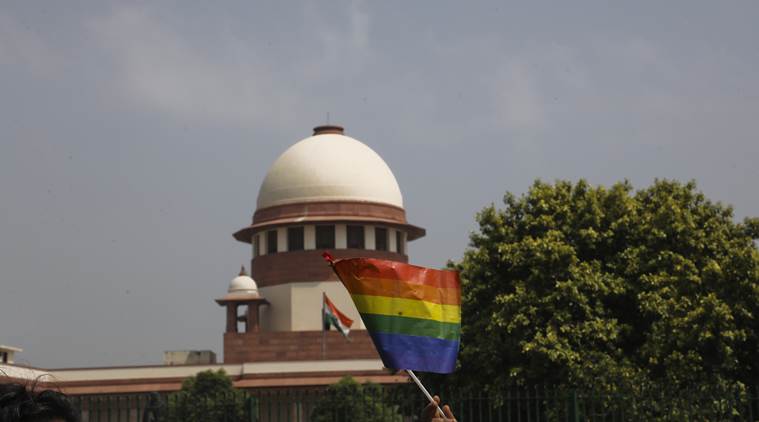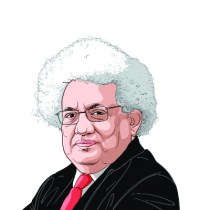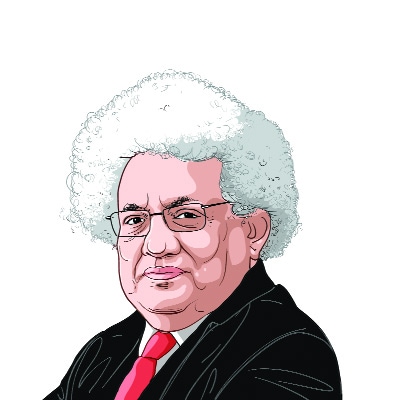Out of my mind: The sole reformer
It is as if the only branch of government functioning to change society for better is the Judiciary.

Just this year, same-sex relationships have been decriminalised.
Every week from Tuesday to Saturday, newspaper headlines are dominated by decisions of the Supreme Court. The pace and scale of its activities are more hectic than any time in the decades since Independence. Just this year, same-sex relationships have been decriminalised. Adultery is no longer a crime. Gender-based restrictions have been removed for temple entry (women catching up with Dalits). Sexual harassment, especially rape, is to be punished severely and by death penalty if the victim is a minor. Triple talaq is against the Constitution.
It is as if the only branch of government functioning to change society for better is the Judiciary. The Legislature at the Centre and state levels is frequently disrupted and barren of any new decisions. The Executive at the Centre, especially the Prime Minister, is consumed by electioneering and, after the torrent of activity in the first half of its tenure, is now bogged down in firefighting. Even in something as vital as triple talaq, despite the invitation of the Judiciary, the best the Executive has been able to do in face of a fractious Parliament is to resort to an ordinance.
What has happened? There is a long history and a short one on this. The short history is simply that no government dares enact reform which may upset any vote bank. As election nears, new vote banks crystallise themselves and it is best to do nothing than to initiate reform. The SC/ST (Prevention of Atrocities) Act is a recent example. The Supreme Court pointed out that a certain change was required by the Rule of Law since no one could be presumed guilty unless proven to be so. The large Dalit vote bank erupted in anger. Opposition parties marched with them. The government surrendered and removed the aspect offending the Dalits. The upper castes exploded. The Opposition once again marched with the upper castes, protesting about the change which they had demanded marching with the Dalits. Hence Bharat Bandh which, luckily for the ruling party, failed.
The long history starts in early Nineteenth Century, when incoming Governor Generals decided to reform Hindu society of its (for them) bad practices. Lord William Bentinck was a leading example. But 1857 happened and the British abandoned social reforms by legislation for the next 90 years. Reforms became the concern of voluntary associations, which used the help of the small number of elected Indian legislators in the first half of the Twentieth Century. The Justice Party in South India achieved great success in reducing Brahmin domination. North India with its Congress legislators resisted such reform.
When Independence came, there was a reluctance to tackle social reform. The Congress Brahmin leadership especially from the Hindi belt clamped down on social change. In economic sphere Socialism; in social sphere Brahminism was the motto. It took the decline of Congress hegemony and Mandal to bring the interests of the lower castes to the forefront of demands.
But there is no single-party majority now. All governments are delicate coalitions of vote banks. Hence no reform.
Over to the Supreme Court, where the Chief Justice has not been immune to political attacks from within and from outside, including a threat to impeach him. But he persisted. Fare thee well Deepak Misra. Good luck Ranjan Gogoi.
For all the latest Opinion News, download Indian Express App
More From Meghnad Desai
- Out of my mind: Rafale RecipeHAL has never produced a fully domestically produced fighter plane. This was why India had MIGs prone to crashing. ..
- Modi’s future?Narendra Modi's life in four parts of 17 years each, and the prospects of BJP/NDA in 2019...
- Out of my mind: A simple lessonFactional splits are the norm rather than exceptions in Indian politics. This is not because there are deep ideological differences among the parties. The trouble…








































No hay comentarios:
Publicar un comentario